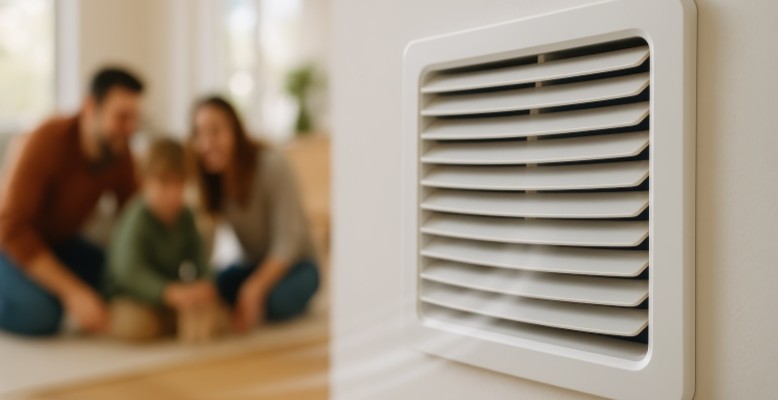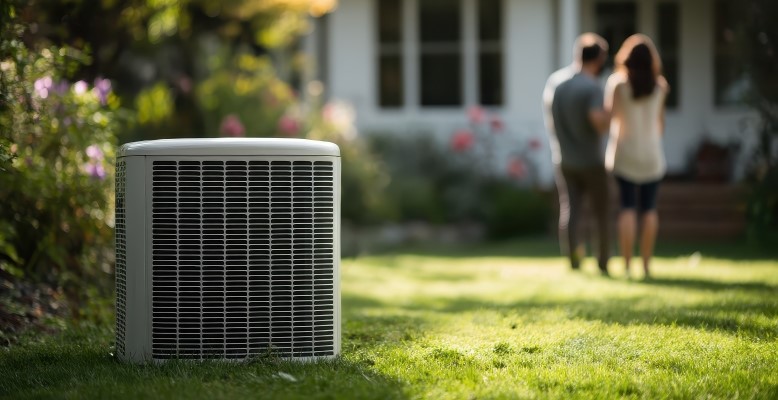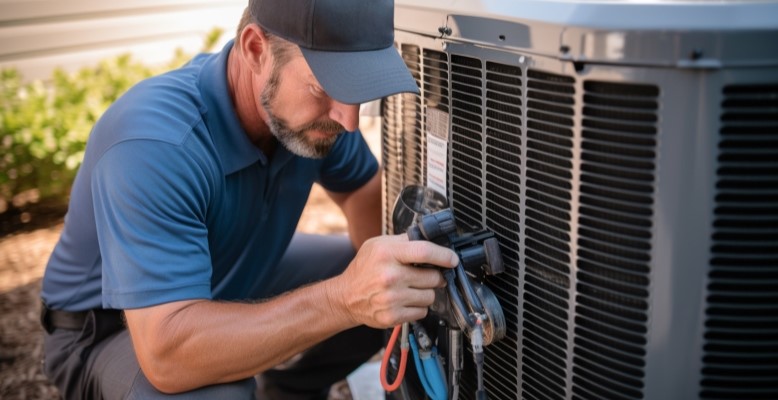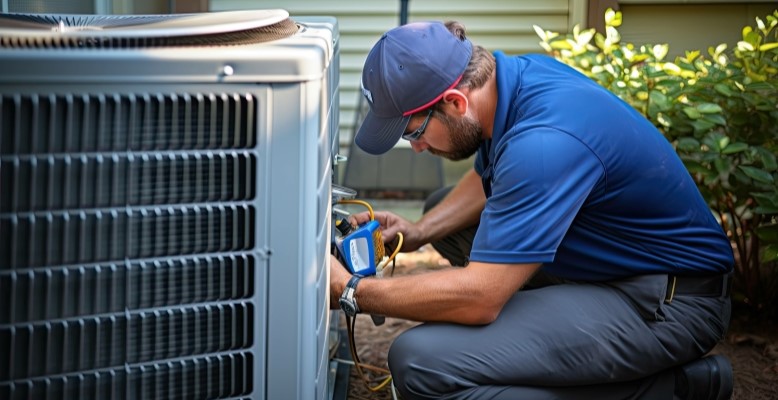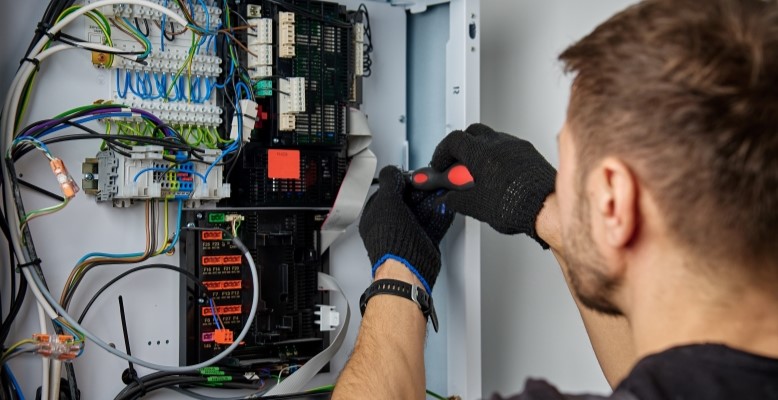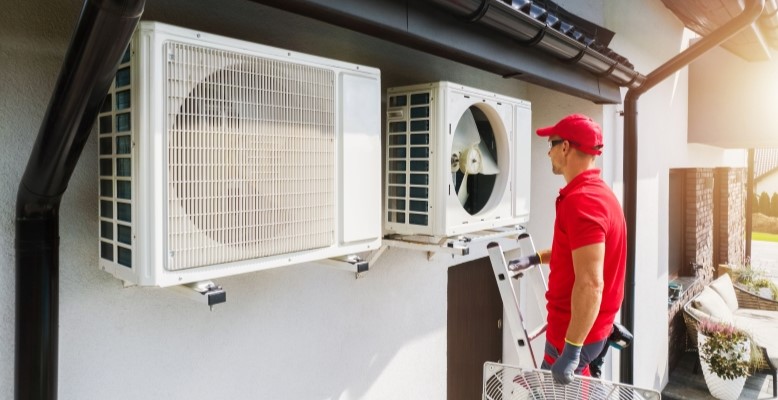Published on April 8, 2025 by: alhhvac
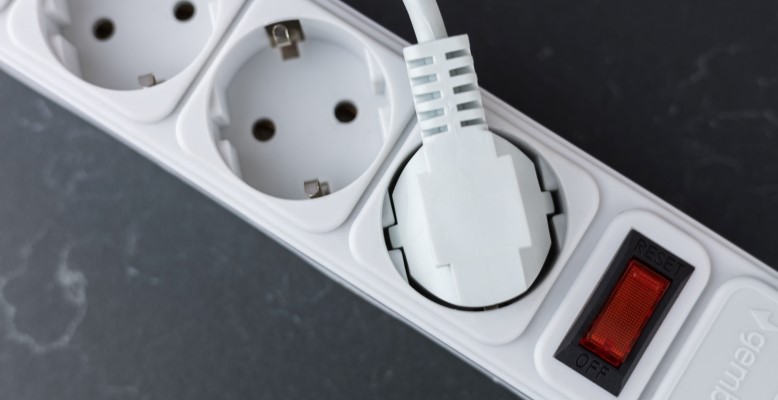
Understand What Causes Power Surges and How to Protect Your Home From Electrical Damage
Few things are as important as having reliable access to electricity — and power surges are a constant threat to losing that access. Power surges can happen without warning, cutting off your access to electricity and damaging your HVAC system, appliances, and electronics. These events often lead to costly repairs or permanent electrical damage, so it’s important to consider what causes power surges and how to prevent them.
This guide from the experts at ALH provides a detailed look at power surges. Our team will define power surges, list some common power surge causes, and explore how poorly installed HVAC systems can contribute to them. Then, we’ll explain how to prevent power surges with our world-class support. This guide also answers some frequently asked questions Atlanta homeowners often ask about power surges.
What Is a Power Surge?
A power surge is a brief, unexpected spike in electrical current that floods electrical wires and equipment with excess electricity. This high level of electric voltage far surpasses the electrical equipment’s limits, causing it to shut down almost instantly.
Power surges are among the most common causes of power outages, electrical fires, and damaged electronics for homeowners. Since they happen so quickly and often without warning, it’s essentially impossible to stop them as they occur. Instead, it’s best to understand what causes power surges so you can prevent them from happening in the first place.
What Causes Power Surges?
As mentioned, in order to prevent power surges, it’s best to understand what causes them to begin with. Here are several common power surge causes homeowners should be aware of:
- Electrical Overloads: Occur when too many devices use the same circuit and overload it with excess electricity. For example, electrical overloads often occur when homeowners plug multiple high-wattage appliances such as microwaves or toaster ovens into a single outlet. To reduce power loads, try using surge protector power strips and consider upgrading your home’s system.
- Faulty Wiring: Damaged, outdated, or improperly installed electrical wiring can cause power surges by creating unstable, inconsistent electrical currents. These currents can suddenly spike and overwhelm connected devices without warning. If your home is older or hasn’t had an electrical inspection in a long time, have a licensed electrician examine your system to see if you need repairs or upgrades.
- Lightning Strikes: Lightning strikes can send an immense burst of electricity through power lines and into your home’s electrical system. While it’s impossible to prevent lightning from striking your home, installing a whole-house surge protector and disconnecting electronics during storms can protect your home from power surges.
- Power Outages and Grid Switching: Utility companies often reroute electricity between different parts of a power grid to support maintenance projects or during high-demand periods. While this typically doesn’t cause issues, it can accidentally cause sudden changes in voltage, leading to power surges. To protect your home from power surges caused by grid switching, consider installing a whole-house surge protector.
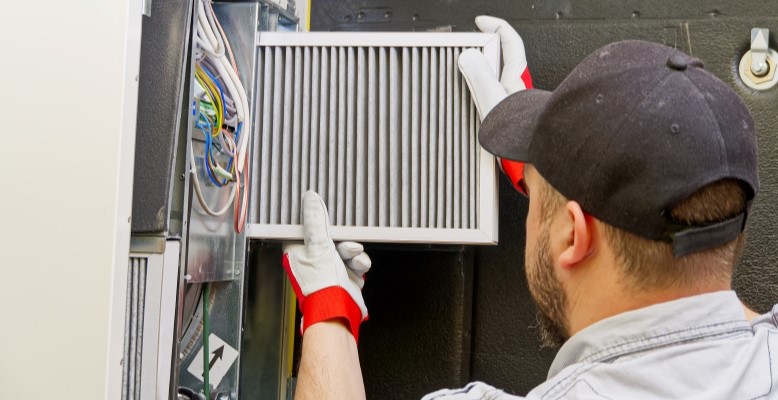
How Poorly Installed HVAC Systems Can Lead to Power Surges
HVAC systems are a surprisingly common cause of power surges. More specifically, poorly installed HVAC systems that aren’t properly matched to your home’s electrical capacity can overload circuits and trigger sudden voltage spikes. Here are a few specific HVAC-related issues that lead to power surges:
- Improper Electrical Wiring: Inexperienced and untrained installation crews often use loose, exposed, or incorrectly routed wires to connect an HVAC system to an electricity source. These issues can cause unstable power flow, leading to sudden power surges. Hiring licensed, experienced professionals for HVAC installation or repair projects will ensure that your unit’s wiring works properly and prevent power surges before they happen.
- Oversized or Mismatched Equipment: Low-quality HVAC installation projects use oversized or mismatched systems that use more power than a home’s electrical system can safely handle. This extra demand can overwhelm circuits and cause sudden power surges.
- Low-Quality Repairs or DIY Work: Although DIY or low-quality HVAC repairs might seem like a great way to save money, they can create serious problems over time. Poor workmanship can damage key components like the motor or fan, forcing the system to work harder than it should. Over time, this excess strain may result in electrical instability and power surges.
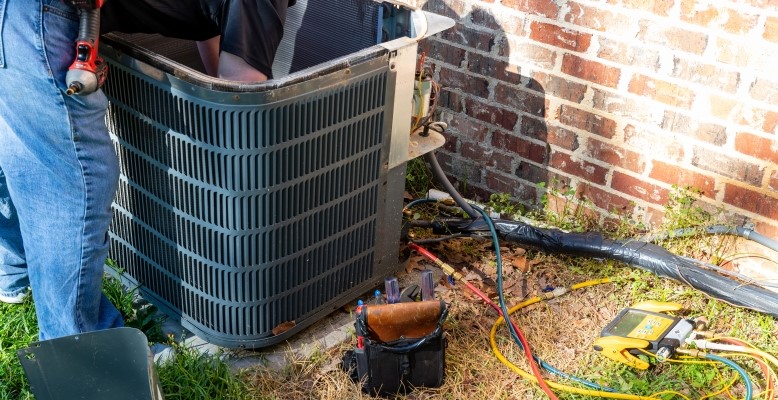
How ALH Minimizes Power Surge Risk Through Expert HVAC Installation
ALH provides Atlanta area homeowners with world-class HVAC installation services that help prevent power surges before they occur. Our HVAC installation experts tailor each system based on your home’s layout and your specific needs. We use premium-grade electrical wiring and high-quality equipment from trusted brands like Bryant, reducing the risk of power surges caused by low-quality parts.
In addition to expert installation services, ALH also offers whole-home surge protectors for added peace of mind. Plus, with constantly rotating specials, homeowners may gain even more value when buying surge protestors or scheduling seasonal HVAC maintenance services.
Contact us today to learn more about this exclusive offer and to get a free quote!
Frequently Asked Questions (FAQs) About Power Surges in Atlanta, GA
What causes power surges?
Lightning strikes, electrical overloads, faulty wiring, and power grid switching are common causes of power surges. Power surges also occur when large appliances or HVAC systems start up or shut down.
Can power surges cause electrical problems?
Yes, power surges can cause serious electrical issues. They can damage outlets, fry circuit boards, and disable expensive electronics such as appliances and TVs. In some cases, they can even start electric fires or cause your home’s electrical system to completely fail.
Can power surges cause shorts in electrical systems?
Yes, power surges can cause shorts in electrical systems. When surges overload wiring networks and connected devices, they can cause short circuiting, which may trip your breaker or permanently damage electrical components.
What causes a power surge in a neighborhood?
Neighborhood-wide surges are often caused by grid switching, transformer failures, or high electrical system demand. Lightning strikes can also damage shared power infrastructure and affect multiple homes at the same time.
Who pays for power surge damage?
Responsibility for power surge damage costs typically depend on what caused the surge. If it’s due to faulty wiring or equipment, the homeowner is usually responsible. However, if grid switching or another utility issue causes a surge, the utility company in question may cover part of the damage.
Does home insurance cover power surges?
While some home insurance policies cover power surges, others do not. Coverage typically depends on the surge’s cause and whether you have specific protections in place ahead of time. In any case, it’s best to review your policy or speak with your insurance provider to learn if you are eligible for coverage.
How can I prevent power surges?
The best way to prevent power surges is by installing a whole-house surge protector. However, other prevention tips you should take include using power strips to avoid overloading circuits, scheduling periodic electrical and HVAC maintenance, and unplugging electronics during thunderstorms.



